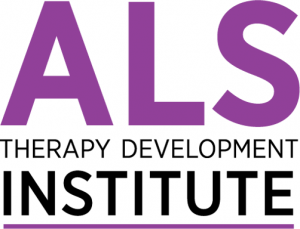Why COVID-19 Treatments May be Coming in Months, While ALS Research Takes Years
Posted: March 19, 2020 in Other News
 ALS TDI
ALS TDI
CAMBRIDGE, MA – For those who have been waiting years, even decades, for a cure for a disease like ALS, it can be both hopeful and frustrating to hear about the possible rapid development of treatments for COVID-19.
Amid the recent epidemic, there are some promising preventative or therapeutic interventions for COVID-19 emerging, including potential vaccines and medications previously developed for other viruses. While we are optimistic about these interventions, it is important to note that they must complete testing before we will know if they are safe and effective.
Assuming that an effective treatment can be found, there are many reasons why a treatment for an infectious disease like COVID-19 might be easier to develop than one for a condition like ALS.
The primary reason is that, in the case of COVID-19, we know what causes the disease: a virus called SARS-CoV2. SARS-CoV2 is one example of a broader category of viruses known as coronaviruses, and thus has many similar characteristics to other infectious diseases we have seen before. The viruses that caused Severe Acute Respiratory Syndrome (SARS) and Middle East Respiratory Syndrome (MERS), which resulted in large outbreaks 2002 and 2015, were also coronaviruses.
Because of this, there is a solid medical background regarding how to combat viral diseases like COVID-19. One way is a vaccine, in which parts of the virus are injected into patients to teach the body’s immune system to fight off the infection. Another way is to find ways to reduce the replication of the virus in the body using medication.
“One thing I often say is that modern medicine is reasonably good at dealing with infectious diseases,” says ALS TDI Chief Scientific Officer, Dr. Fernando Vieira, M.D., “but it still struggles with diseases that don’t have a specific ‘bug’ for a cause.”
Unfortunately, unlike COVID-19, we don’t know of a specific culprit in most cases of ALS. However, we are reasonably certain that it isn’t an infectious disease like a virus or bacteria. We know about 10% of ALS cases, known as “familial” ALS, are caused by genetic mutations that can be passed down from parents to their children. For the other 90% of “sporadic” ALS we do not know the cause, although we do have some theories. This means that ALS remains much more of a mystery than most infectious diseases and, thus, harder to prevent, treat, or cure. However, we at the ALS Therapy Development Institute (ALS TDI), along with researchers around the world, are continuing our efforts to find effective treatments for ALS while simultaneously investigating its underlying causes, even as the COVID-19 pandemic continues.
To learn more about the ALS Therapy Development Institute (ALS TDI) and our work to develop treatments for ALS, visit www.als.net/als-research.
You can learn more about COVID-19 and the proper precautions to at www.cdc.gov/coronavirus/2019-ncov. Specific guidelines for those at a high risk for serious illness, such as people living with ALS, can be found at www.cdc.gov/coronavirus/2019-ncov/specific-groups/high-risk-complications.html.

